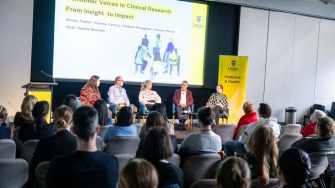Consumer Voices in Clinical Research: From Insight to Impact
On the 19th of May, UNSW Medicine & Health’s Clinical Research Unit hosted a compelling event to mark International Clinical Trials Day which is on the 20th May 2025, bringing together researchers, consumers, and health leaders to explore this important topic.

